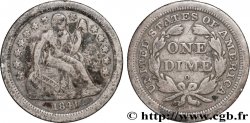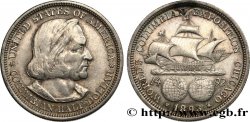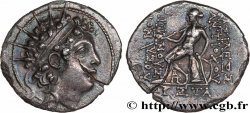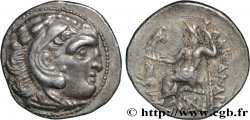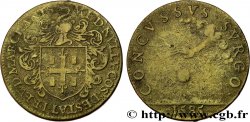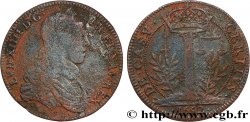fwo_313082 - UNITED STATES OF AMERICA 1 Dollar Woodrow Wilson tranche B 2013 Denver
3.00 €(Approx. 3.57$ | 2.61£)
Quantity
Add to your cart

Type : 1 Dollar Woodrow Wilson tranche B
Date: 2013
Mint name / Town : Denver
Quantity minted : 3360000
Diameter : 26,50 mm
Orientation dies : 6 h.
Edge : inscrite en creux : E PLURIBUS UNUM (date) (lettre d’atelier)
Obverse
Obverse legend : WOODROW WILSON / IN GOD WE TRUST 28TH PRESIDENT 1913-1921.
Obverse description : portrait de Woodrow Wilson.
Reverse
Reverse legend : UNITED STATES OF AMERICA // $1.
Reverse description : inscrite en creux : E PLURIBUS UNUM (date) (lettre d’atelier).
Reverse translation : (États-Unis d’Amérique).
Commentary
Tranche position B : quand la monnaie est posée portrait au dessus, la légende de la tranche est à l’envers.
Woodrow Wilson (1856-1924) est le 28e président des États-Unis d’Amérique. Ancien président de l’Université de Princeton, il devient en 1902 gouverneur démocrate de l’État de New York. En 1912, il est élu président à la faveur d’une triangulaire l’opposant au sortant Théodore Roosevelt et au candidat républicain.
Dès 1913, il met en place le Réserve Fédérale pour réguler le secteur bancaire mis à mal par la Panique bancaire de 1907. En 1914, il décide l’intervenir au Mexique. Il est réélu pour un second mandat en 1916. Initialement état neutre dans le premier conflit mondial, le torpillage du Lusitania en 1916, l’intransigeance diplomatique allemande et enfin la guerre sous-marine à outrance incitent les États-Unis à entrer en guerre en avril 1917.
A l’issue de la guerre, il soutient la création de la Société des Nations. Cependant, il échoue à faire ratifier par le Congrès le Traité de Versailles. Paralysé et atteint de cécité, il se retire en 1921. Sous son mandat, furent aussi adoptés l’élection des sénateurs au suffrage universel direct (1913) et le droit de vote des femmes (1920). Malgré son veto, le XVIIIe amendement instaurant la prohibition fut adopté par le Congrès en 1919.
Ces monnaies ont été uniquement vendues par l’US Mint et pas mises en circulation.
Edge position B: when the coin is placed portrait upwards, the edge legend is upside down.
Woodrow Wilson (1856-1924) was the 28th President of the United States of America.. A former president of Princeton University, he became the Democratic governor of New York State in 1902.. In 1912, he was elected president in a three-way race between the incumbent Theodore Roosevelt and the Republican candidate..
In 1913, he established the Federal Reserve to regulate the banking sector, which had been damaged by the Banking Panic of 1907.. In 1914, he decided to intervene in Mexico. He was re-elected for a second term in 1916.. Initially a neutral state in the First World War, the torpedoing of the Lusitania in 1916, German diplomatic intransigence and finally all-out submarine warfare prompted the United States to enter the war in April 1917..
At the end of the war, he supported the creation of the League of Nations.. However, he failed to get Congress to ratify the Treaty of Versailles.. Paralyzed and blind, he retired in 1921. During his term, the election of senators by direct universal suffrage (1913) and the right to vote for women (1920) were also adopted.. Despite his veto, the 18th Amendment establishing Prohibition was adopted by Congress in 1919..
These coins were only sold by the US Mint and not put into circulation.
Woodrow Wilson (1856-1924) est le 28e président des États-Unis d’Amérique. Ancien président de l’Université de Princeton, il devient en 1902 gouverneur démocrate de l’État de New York. En 1912, il est élu président à la faveur d’une triangulaire l’opposant au sortant Théodore Roosevelt et au candidat républicain.
Dès 1913, il met en place le Réserve Fédérale pour réguler le secteur bancaire mis à mal par la Panique bancaire de 1907. En 1914, il décide l’intervenir au Mexique. Il est réélu pour un second mandat en 1916. Initialement état neutre dans le premier conflit mondial, le torpillage du Lusitania en 1916, l’intransigeance diplomatique allemande et enfin la guerre sous-marine à outrance incitent les États-Unis à entrer en guerre en avril 1917.
A l’issue de la guerre, il soutient la création de la Société des Nations. Cependant, il échoue à faire ratifier par le Congrès le Traité de Versailles. Paralysé et atteint de cécité, il se retire en 1921. Sous son mandat, furent aussi adoptés l’élection des sénateurs au suffrage universel direct (1913) et le droit de vote des femmes (1920). Malgré son veto, le XVIIIe amendement instaurant la prohibition fut adopté par le Congrès en 1919.
Ces monnaies ont été uniquement vendues par l’US Mint et pas mises en circulation.
Edge position B: when the coin is placed portrait upwards, the edge legend is upside down.
Woodrow Wilson (1856-1924) was the 28th President of the United States of America.. A former president of Princeton University, he became the Democratic governor of New York State in 1902.. In 1912, he was elected president in a three-way race between the incumbent Theodore Roosevelt and the Republican candidate..
In 1913, he established the Federal Reserve to regulate the banking sector, which had been damaged by the Banking Panic of 1907.. In 1914, he decided to intervene in Mexico. He was re-elected for a second term in 1916.. Initially a neutral state in the First World War, the torpedoing of the Lusitania in 1916, German diplomatic intransigence and finally all-out submarine warfare prompted the United States to enter the war in April 1917..
At the end of the war, he supported the creation of the League of Nations.. However, he failed to get Congress to ratify the Treaty of Versailles.. Paralyzed and blind, he retired in 1921. During his term, the election of senators by direct universal suffrage (1913) and the right to vote for women (1920) were also adopted.. Despite his veto, the 18th Amendment establishing Prohibition was adopted by Congress in 1919..
These coins were only sold by the US Mint and not put into circulation.







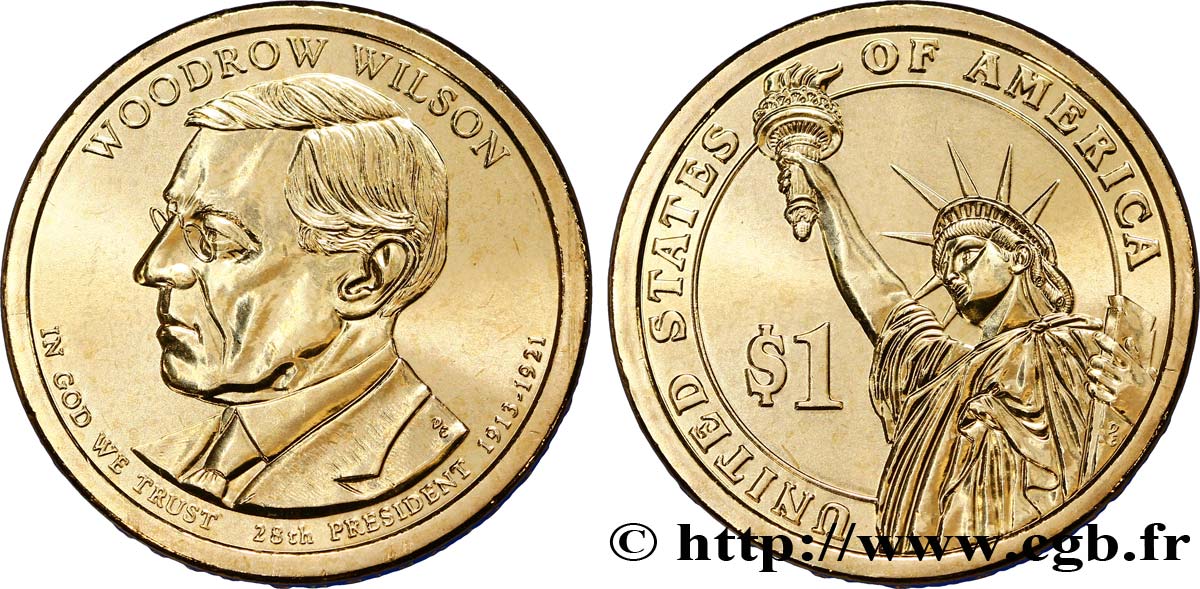
 Report a mistake
Report a mistake Print the page
Print the page Share my selection
Share my selection Ask a question
Ask a question Consign / sell
Consign / sell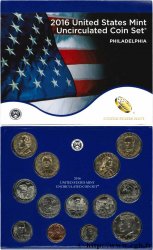
 Full data
Full data


